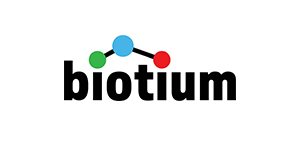TNFS15 / VEGI (Vascular Endothelial Growth Inhibitor) (VEGI/2052R), 1mg/mL
TNFS15 / VEGI (Vascular Endothelial Growth Inhibitor) (VEGI/2052R), 1mg/mL
Artikelnummer
BTMBNUM2052-50
Verpackungseinheit
50 uL
Hersteller
Biotium
Verfügbarkeit:
wird geladen...
Preis wird geladen...
Quote the promo code SZANTIBODY when ordering to receive a 10% discount on this antibody, from October 1st to December 31st 2024. No additional discounts during the promo.
Description: VEGI is an anti-angiogenic cytokine that belongs to tumor necrosis factor superfamily, member 15 (TNFSF15). This protein is abundantly expressed in endothelial cells, but is not expressed in either B or T cells. The expression of this protein is inducible by TNF and IL-1 alpha. This cytokine is a ligand for receptor TNFRSF25 and decoy receptor TNFRSF21/DR6. It can activate NF-kappaB and MAP kinases, and acts as an autocrine factor to induce apoptosis in endothelial cells. This cytokine is also found to inhibit endothelial cell proliferation, and thus may function as an angiogenesis inhibitor. Reduced expression of VEGI has been reported as a marker of poor prognosis in breast cancer.Primary antibodies are available purified, or with a selection of fluorescent CF® Dyes and other labels. CF® Dyes offer exceptional brightness and photostability. Note: Conjugates of blue fluorescent dyes like CF®405S and CF®405M are not recommended for detecting low abundance targets, because blue dyes have lower fluorescence and can give higher non-specific background than other dye colors.
Conjugate: Purified, BSA-free
Concentration: 1 mg/mL
Storage buffer: PBS, no BSA, no azide
Product Origin: Animal - Oryctolagus cuniculus (domestic rabbit)
Clone: VEGI/2052R
Entrez Gene ID: 9966
Immunogen: Recombinant full-length human VEGI protein
Verified AB Applications: IHC (FFPE) (verified)
Z-Antibody Applications: IHC, FFPE (verified)
| Artikelnummer | BTMBNUM2052-50 |
|---|---|
| Hersteller | Biotium |
| Hersteller Artikelnummer | BNUM2052-50 |
| Verpackungseinheit | 50 uL |
| Mengeneinheit | STK |
| Reaktivität | Human |
| Klonalität | Recombinant |
| Methode | Immunohistochemistry |
| Isotyp | IgG |
| Wirt | Rabbit |
| Konjugat | Unconjugated |
| Produktinformation (PDF) | Download |
| MSDS (PDF) | Download |

 English
English







